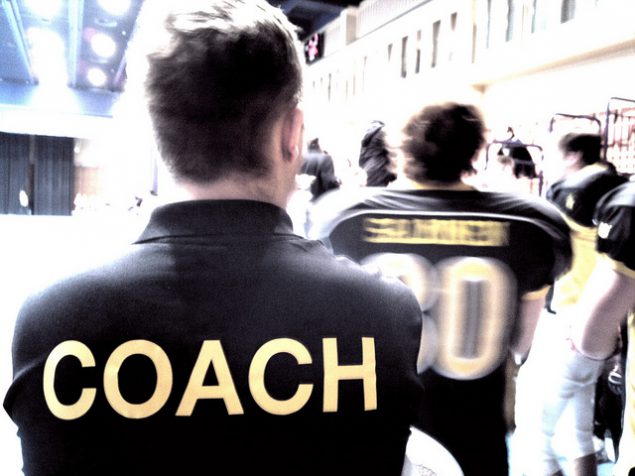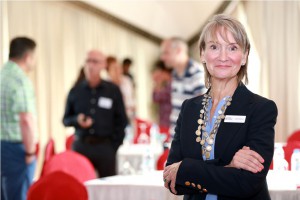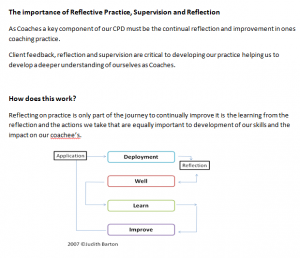Keep Calm and Get a Coach in 2016


Happy New Year to everyone, as we look ahead we hope for all good things for our family and friends.
As I reflect back on the previous year I find myself thinking of things I didn’t do and now become part of my must do list for 2016. A large part of my life focuses on reflection and self development, which is just me! It can be quite easy to sit and write a long list of the things we need to get better at, but what will make the biggest impact? Where is the greatest return for my investment?
I invite clients to think of themselves as their own finance director and ask some tough questions. Remember to consider the longer term return on investment, not just the next 12 months, will it add to your skills and the service you offer clients. It is likely that whatever your work is now it will be different in ten years.
In the UK the fastest growing workforce is the over 50’s. With the removal of a compulsory retirement age and an increase in health and life expectancy, many individuals are continuing to work longer in their field or move to a new field of work which may require training and support. So being ready mentally and physically for our next career will become increasingly important. Of course not all of us will be able to continue in our chosen career, look at the work of Frey and Osborne 2013. In their study they indentified those jobs that are likely to be extinct in 10 years (2023) from now, so don’t train for extinction!
Investing in Evidence Based Development
If we are able to continue developing we are continuing the process of learning (Viall 1996). As a coach we need to invest in our CPD (continuous professional development) by firstly considering what will make the greatest difference to our clients. To do this we really need to understand our performance as a coach. Understanding our own performance will come from:
- Client feedback +
- Supervisor feedback +
- Self reflections +
- Peer coaches +
- Supervisor +
- Coaching +
= Analysis
Real understanding will come from analysing all of the above. Then identify and prioritise what will make the greatest difference.
An example could be, you are working with a client that would benefit from more focused career coaching work and you recognise this is likely to be the area of need from potential clients for the next 5 years and you feel less comfortable in this area. A second very easy example for all coaches is the return on investing in supervision. Supervision provides the essential ‘scaffolding’ to support your practice – the quality control, an assurance to your clients, or thirdly sometimes we forget, get a coach to support your development in 2016
We then apply our learning to our activities to add value to ourselves and of course our clients. In certain countries such as the Nordic ones, lifelong learning is embedded in the culture. Learning new stuff is pleasure in itself.
In the coaching profession and other fee for service environments learning is more likely to depend on the impact it has on the services we offer and on the performance of the session. In order to make this impact we need to really understand ourselves and our performance. Coaches I work with will be well aware of my passion for indentifying how well we perform and what makes the difference in our performance. I advocate frequent self review and reflection supported through supervision and essential to this is client feedback using the following model.

Through this approach you will be able to compile your evidence and prioritise your development needs.
Analysis and Definitions
When we consider areas for development we can be quite general ‘I need to be a better listener’. ‘I want to improve my questioning’. The first step is to analyse what is listening, for example, what needs to be improved? By truly understanding this, the coach can identify the focus. For example, is the coach an effective listener but runs out of energy? So energy and stamina during the session is an issue, not listening. Once the analysis is complete and the development issues are defined move to prioritisations.
Prioritisation
How are you going to prioritise your investment in the next 12 months based on impact? A very important question to ask yourself is what does impact mean to you? An example, impact = an improvement in my coaching performance, which consequently enhances the client experience, which in turn leads to return/attracting more clients.
Using a methodology such as this will focus thinking and investment. It also offers an evidence based development approach to share with clients, sponsors and professional bodies.
Have a very successful coaching and mentoring year. Remember support yourself, to then support your clients, with a coach/supervisor in 2016.






